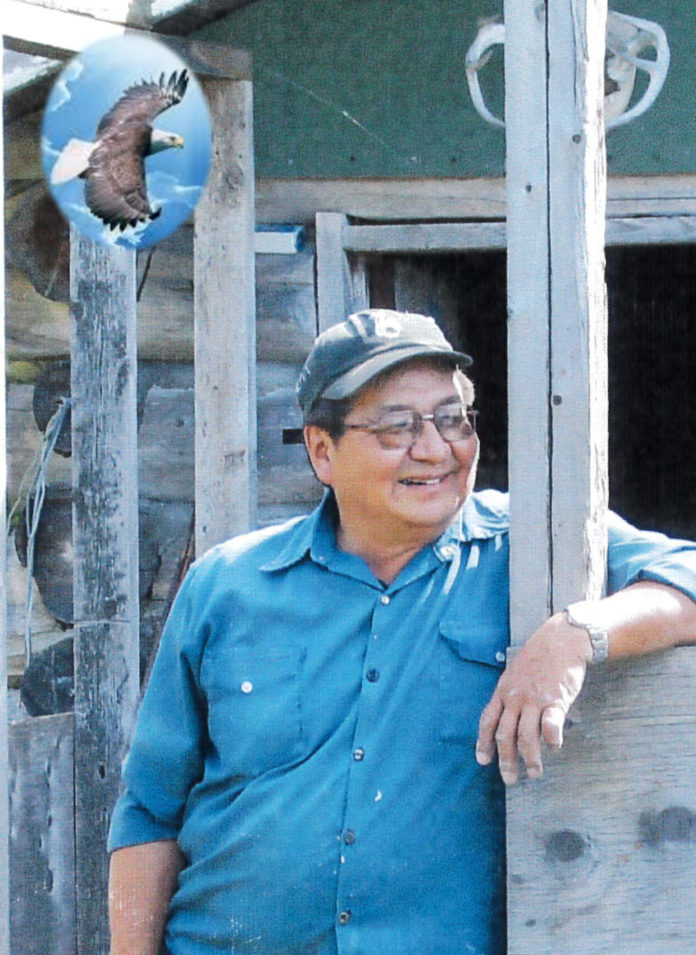EDITOR’S NOTE: Crime Prevention Week is an annual awareness event that ran from November 7 to 13, 2021. This year’s theme was Safer Communities, Stronger Ontario, and it encourages Ontarians to approach community safety and well-being as a shared responsibility with police services. Everyone has a role to play when it comes to crime prevention, whether by reporting suspicious activity to police, having conversations with friends, family or vulnerable persons, or finding ways to stay protected from cybercrime, online scams and reduce the risks to family, community and property.
M’CHIGEENG – Crime Prevention Through Environmental Design (CPTED) encourages design principles at your home to reduce risks to your family and property. These are simple security ideas that most people can implement, such as installing sufficient lighting, keeping doors and windows free from obstruction and ensuring hedges and lawns are not overgrown. UCCM Anishnaabe Police Service’s Social Navigator Daughness Migwans recently hosted a webinar on CPTED for community members as part of ongoing efforts to build safe communities.
CPTED is not a new program, Ms. Migwans told The Expositor. “It’s been around in policing for a long time but it’s still relevant today. It provides some pretty simple, low-cost home and property security ideas that people can implement.”
CPTED “challenges homeowners and tenants to take a look around within their immediate environment to see if there’s things that they can do to make their home more secure,” she said. For example, people will plant a tall cedar hedge, thinking that is good security when it actually gives people who are looking to break into homes the perfect cover to do so without being seen. It’s better to have an unobstructed view of the area around your home. Fencing should have a secure, lockable gate to prevent easy access.
“If you have a hedge, trim it down and keep it maintained,” she said. “Maintain your lawn. An overgrown yard could indicate a vacant house and that’s a prime type of target. If you’re away in the wintertime and your driveway isn’t shoveled, that’s a prime indicator that nobody’s been there for a while and the place is empty. If somebody is looking to break in, that makes it more appealing to them.”
Take a look at the lighting around your home, suggested Ms. Migwans. “Does it provide a true colour representation? A security picture under a certain light may show something that appears green but is actually purple or black, so does the lighting that’s there actually show the right colour hue?”
CPTED tips include installing bright security lighting and using motion detectors and timers. Exterior doors should be solid core and fitted with deadbolt lots. Sheds and outbuildings should be visible from the home and secured with locks. Another tip is not keeping car or other keys right beside the door. “A common place to keep keys is a table, shelf or hook just inside the door,” she noted. Theft is often a crime of opportunity and CPTED is about reducing opportunities for criminals.
“Is there a ladder in your yard that somebody may use to get into your house more easily?” asked Ms. Migwans. “Relocate any lawn furniture from a position where they’re immediately under a window that someone could use that to get into an upper storey window.”
They may be walking by the house scoping out the neighbourhood and notice over time that nobody is there during this time period, she noted. “One of the common things we talk about when we’re talking about crime prevention through environmental design is whether your blinds are shut tight when you’re home. People don’t want somebody who is walking past to see in but at the same time, they can’t see out. They wouldn’t know if their home or their neighbour’s house was being scoped out or broken into or vandalized because they can’t see out their curtains and no one can see in.” Open blinds don’t mean crime is going to stop but if potential criminals think there’s eyes on them they’re more likely to move on to another area, she explained.
Be mindful if or when a stranger comes to your door or somebody who wouldn’t normally come to your house shows up at the door. Consider calling the police station and talking to an officer if that happens, said Ms. Migwans. It may not be potential criminal activity but the call could lead to an officer coming to the home, who would have a look around. “It sends the message that people in this community are very safety conscious and don’t let things go. If people are not reporting things, that gets around and could lead to the thinking that nobody calls the cops anyway, so I can go in this area and nothing probably is going to happen.”
From a larger community or neighbourhood perspective, there are things community members can be doing together that make the town safer. Are there walking paths that encourage people to be out walking their dogs at all hours of the day? Are there parks and places where somebody can sit down and take a little break when they’re on their walk or biking trail. “Citizens who are going about their day are extra eyes and ears around our neighbourhoods. When someone can see what’s happening they are more likely to report it,” she noted.
UCCM Police have performed community safety audits in the past and could again if requested, Ms. Migwans said. They can also respond to individual requests for home safety checks. “If an elderly person lives alone or is feeling vulnerable, we can have officers or civilians assigned to do a home safety audit and help that individual one on one to look at things they can do at little to no cost to make their home more secure. We want to reassure them if they’re ever home and there’s something outside, it’s okay to call the police to come and help them make sure their property is secure. A lot of people don’t necessarily think what is happening is bad enough to call the police or they think police have bigger things to deal with, but that doesn’t mean that personal safety isn’t important.”
“We’re trying to build community around community safety,” she said. “Sometimes when bad things are happening, the community can feel like it is in chaos. It can be really isolating for people. A couple of years ago we started what was initially going to be community-specific Neighbourhood Watches but that was broadened to be Mnidoo Mnissing Neighbourhood Watch that encompasses all of our six communities. People who are interested in Neighbourhood Watch should call our office (705-377-7135) and make sure we have their contact information so we can get in touch with them and build a community of safety, so people don’t feel so isolated when things are happening in their area.”





